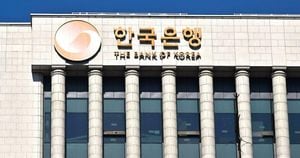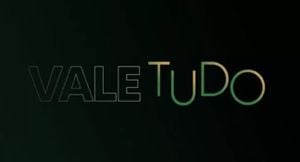South Korea's 2024 university admissions process has sparked significant controversy, leading to protests and intense debates at various institutions. The incident highlights the deep divisions among students and the broader societal tensions over the government's actions.
On February 24, 2025, students from Ewha Womans University held protests against President Yoon Suk-yeol's administration amid claims of anti-democratic measures compromising the integrity of academic institutions. These actions were part of larger movements reacting to perceived injustices within the admissions system.
During this protest, students made strong declarations. "We will not allow coup-supporting forces to have footing at Ewha,” expressed members of the student group defending democratic principles at the university. Such statements echo the historical significance of Ewha Womans University as a leading institution for feminist and democratic movements.
Recent protests at Ewha and other universities, including Soongsil University, reflect students' discontent with government handling of not only admissions but also broader political issues surrounding President Yoon’s authority and policies. This unrest is compounded by the students’ historical role in advocating for democratic reforms, with many expressing their disappointment at peers opposing impeachment efforts against the president.
On the same day, Bong Jun-hee, another student actively participating, remarked, “Students have gathered for constructive debate on these issues or have been sidelined by those who claim to represent dissent.” This comment underlines the rift within the student body, where discussions on civil rights and democratic engagement are at the forefront of societal concerns.
Protests are not limited to Ewha. Across South Korea, students have been gathering to voice their opinions—both for and against the impeachment process to which the government is subjected. This includes counter-protests at various universities, such as Soongsil, signaling the fiery climate of political discourse among the youth.
At Ewha, many students have expressed their disbelief at peers supporting figures like President Yoon, with student statements indicating the protests reflect deeply held beliefs about the need to uphold the democratic fabric of the nation. “This university has historically led democratic movements, and it is disheartening to see support for impeachment opposition here,” said Lee Jin, another protester.
Despite the university administration's attempts to maintain stability on campus amid turmoil, voices of dissent are growing louder. Gu Seol-ah, another engaged student, stated, “It is unacceptable to use our name for actions opposed to democratic principles,” directly challenging those supporting Yoon’s administration and emphasizing the pivotal role students should play within this narrative.
Upcoming events expected to continue this trend, with Ewha’s student council scheduling additional protests aimed at bringing attention to their demands for reform and accountability from both the school and government. This impending protest will see alumni and former student leaders rallying together, emphasizing their collective commitment to uphold the university's illustrious past of activism.
Overall, the 2024 academic year is poised to become pivotal for South Korea’s education system and political discourse as students solidify their positions on democratic values during these changing times.
Notably, reactions from the university's administration about these protests will be instrumental moving forward. A spokesperson for Ewha stated on February 24, "We are discussing how best to assure student safety during these events.” Addressing civil unrest during what could be considered the future of Korean democracy will be integral to shaping how educational institutions engage with political issues.



